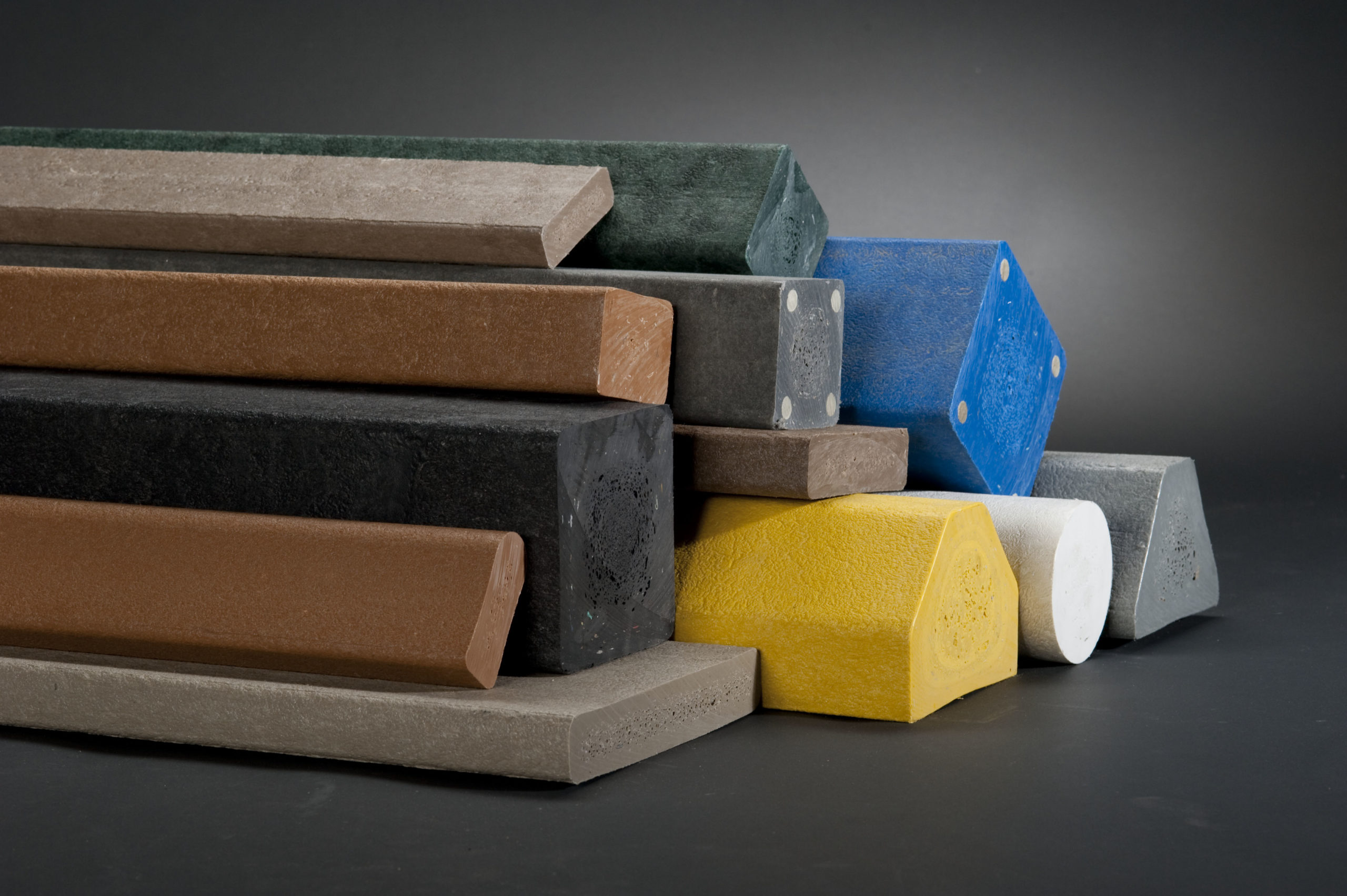Checking Out the Uses and Advantages of Recycled Composites in Modern Industries
In today's swiftly evolving commercial landscape, the utilization of recycled compounds has amassed enhancing focus for its prospective to redefine traditional production practices. The combinations of recycled materials with advanced composite modern technologies provides an encouraging opportunity for improving sustainability, durability, and cost-efficiency across various markets. As markets seek innovative options to attend to environmental worries and enhance operational performances, the unification of recycled compounds emerges as an engaging alternative. This shift in the direction of sustainable techniques not just aligns with worldwide preservation efforts however additionally provides a myriad of advantages that hold the key to shaping the future of modern-day production techniques.
Environmental Advantages of Recycled Composites
The utilization of recycled compounds in contemporary industries provides considerable environmental benefits, contributing to the reduction of waste and the conservation of natural resources. By incorporating recycled composites into manufacturing processes, industries can reduce their reliance on virgin materials, consequently lowering the quantity of waste produced and the energy required for extraction and production. This shift towards using recycled composites helps in diverting products from land fills, reducing the problem on waste administration systems, and decreasing greenhouse gas emissions connected with traditional production practices.
In addition, using recycled compounds advertises the conservation of natural resources such as lumber, minerals, and water, which are often depleted through the removal and handling of basic materials (composites). By prolonging the life expectancy of materials through recycling, industries can help preserve communities and biodiversity by reducing the demand for new sources. Overall, the fostering of recycled compounds in contemporary industries plays a vital function in promoting sustainability and mitigating the ecological influence of production procedures
Improved Resilience in Item Manufacturing
With an emphasis on durability and effectiveness, incorporating recycled compounds into item production processes boosts longevity and sustainability. By utilizing recycled composites, suppliers can produce items that are not only strong yet also immune to tear and use, making them ideal for long-term use in numerous industries. The mix of different materials in recycled compounds can commonly result in boosted strength and toughness contrasted to standard materials, supplying an affordable remedy for creating durable items.
One of the crucial benefits of utilizing recycled composites in product production is the capability to tailor the product buildings to satisfy certain durability demands. By readjusting the composition and manufacturing methods, suppliers can customize the recycled composites to withstand extreme ecological problems, hefty loads, or frequent use without compromising on performance. This versatility in layout and production enables the production of extremely sturdy products that preserve their stability gradually, reducing the need for regular replacements and eventually contributing to a more sustainable manufacturing process.
Cost-Effectiveness and Economic Benefits
Including recycled composites into product production not just enhances sturdiness and sustainability yet also provides substantial cost-effectiveness and economic advantages. Using recycled composites can result in minimized product costs as recycled materials are usually cheaper than virgin materials. Furthermore, reusing composite products can reduce garbage disposal expenditures and decrease the need for landfill area, contributing to general expense financial savings for sectors.

Technology and Design Adaptability With Recycled Compounds
Making use of recycled compounds in modern-day industries uses exceptional opportunities for innovation and design flexibility. By integrating recycled materials into composite manufacturing processes, firms can push the limits of conventional style restrictions and discover new possibilities. The adaptability of recycled composites permits the creation of intricate shapes and structures that may not be achievable with traditional materials.
One of the vital advantages of recycled composites is special info their capacity to be formed right into different types, offering designers the flexibility to explore special shapes and dimensions. composites. This versatility opens a globe of innovative opportunities, making it possible for the advancement of lightweight yet long lasting products that fulfill the particular requirements of various industries
In addition, the usage of recycled composites promotes lasting practices and supports the round economic climate by lowering waste and minimizing the ecological impact of producing procedures. This concentrate on environmentally friendly style services lines up with the growing trend in the direction of sustainability in modern sectors, making recycled composites a beneficial source for innovative and forward-thinking companies.
Applications Across Numerous Industries
Recycled composites discover impactful and diverse applications throughout a broad range of sectors due to their unique residential why not try here properties and sustainability benefits. The aerospace market advantages from recycled composites in the manufacturing of aircraft components, where the materials' strength-to-weight ratio is important for ensuring safety and security and efficiency. The adaptability and sustainability of recycled composites make you can try these out them beneficial across different industries, driving development and ecological stewardship.
Verdict
In verdict, the utilization of recycled compounds in contemporary industries supplies significant environmental advantages, enhanced durability in item production, cost-effectiveness, and economic advantages. The usage of recycled composites permits for advancement and layout versatility throughout various markets. Overall, the adoption of recycled composites offers a sustainable and functional service for meeting the requirements of the sector while also decreasing environmental effect.

One of the crucial advantages of using recycled compounds in item manufacturing is the ability to customize the product properties to fulfill certain sturdiness requirements. Making use of recycled compounds can lead to reduced product expenses as recycled materials are often much less expensive than virgin materials. The aerospace sector benefits from recycled compounds in the manufacturing of aircraft components, where the products' strength-to-weight ratio is critical for making certain security and efficiency.